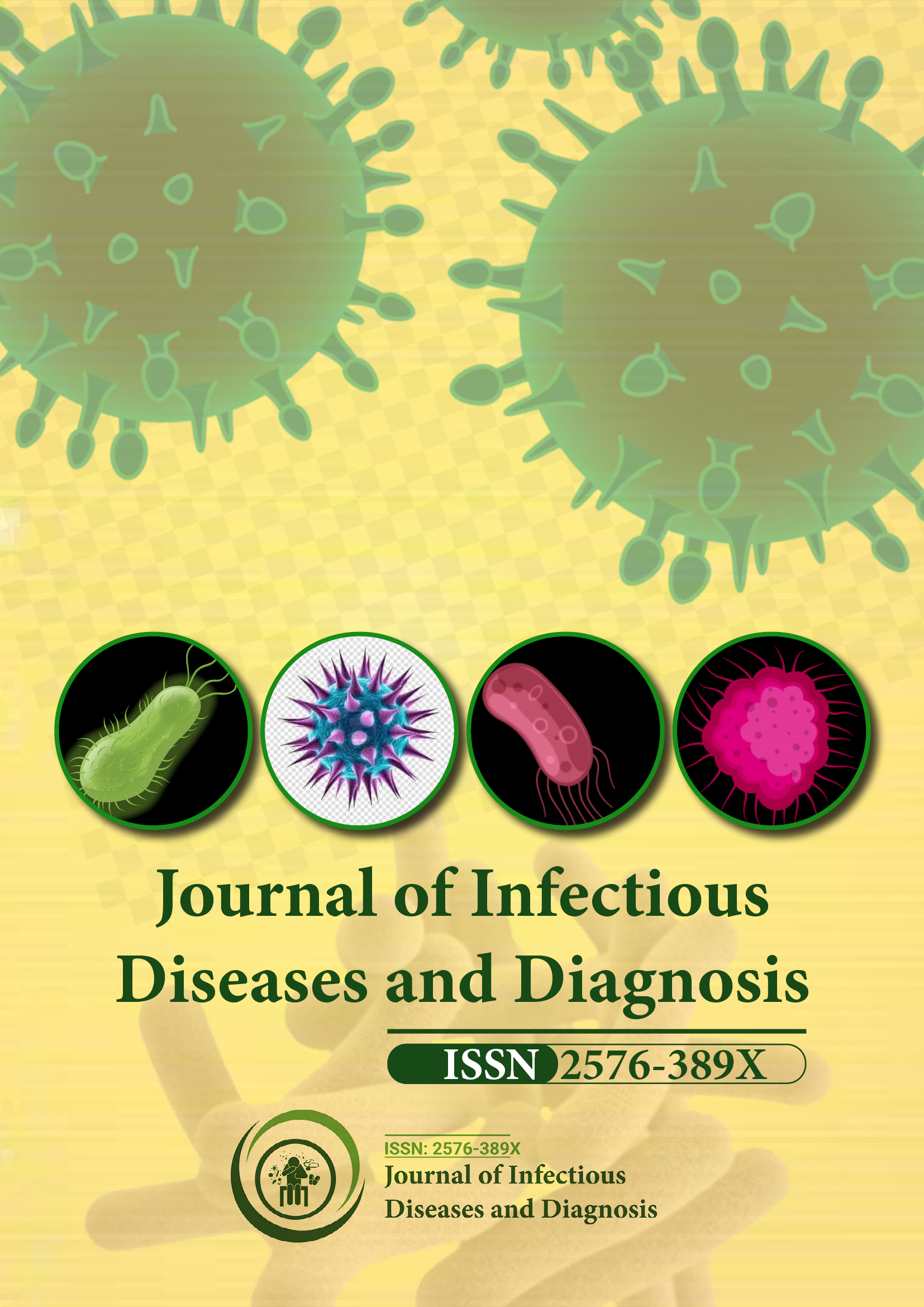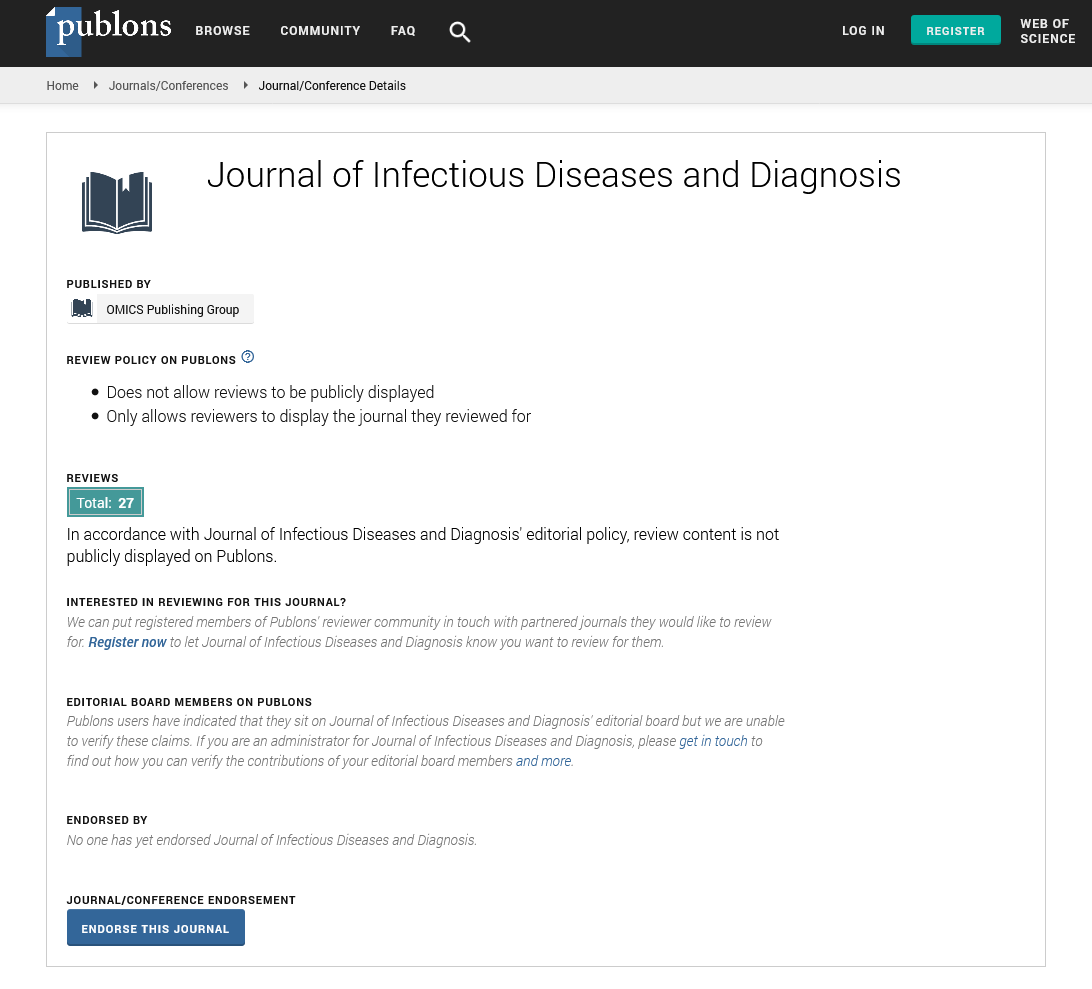Indexed In
- RefSeek
- Hamdard University
- EBSCO A-Z
- Publons
- Euro Pub
- Google Scholar
Useful Links
Share This Page
Journal Flyer

Open Access Journals
- Agri and Aquaculture
- Biochemistry
- Bioinformatics & Systems Biology
- Business & Management
- Chemistry
- Clinical Sciences
- Engineering
- Food & Nutrition
- General Science
- Genetics & Molecular Biology
- Immunology & Microbiology
- Medical Sciences
- Neuroscience & Psychology
- Nursing & Health Care
- Pharmaceutical Sciences
Assessment of knowledge and attitude towards covid-19 and its preventive measures among adult residencies in Silte zone, Southern Ethiopia, 2020
2nd International Conference on Microbial Pathogenesis & Infectious Diseases
February 18-19, 2022 | Webinar
Mubarek Yesse
Werabe University, Southern Ethiopia
Scientific Tracks Abstracts: Jour of Infec Dise & Diag
Abstract:
Background: Coronavirus 2019 is currently a global health threat and an international public health emergency. There is a strong need to reinforce community KAP to control the spread of the virus. Therefore, determining the magnitude of KAP will serve as further public health interventions, awareness, and policy improvements on the COVID-19. Objective: This study was aimed to assess knowledge, attitude and practice towards COVID-19 and Associated factors among Adult residents in Silte Zone, Southern Ethiopia, 2020. Methods: A community-based cross-sectional study was employed to assess the KAP towards Covid-19 among adults in the communities of Silte Zone, Southern Ethiopia. A total of 853 participants were selected using multistage stratified sampling technique. Data from the respondents were collected using structured interview administered questionnaire. Data collected contains knowledge, Attitude, and preventive practice addressing questions and socio-demographic characteristics. Descriptive statistics were used to set the KAP level and a logistic regression model was applied to test the association of KAP with various independent variables. Result: Of 853 participants invited to participate, 836 (98%) agreed and were enrolled. The mean age (standard deviation) of enrollees was 34 (SD±11.58) years; majority were male adults (59.7%) and they had able to read and write (76.3%). Overall, 81.7% had sufficient knowledge, 78.4% had a positive attitude, and 43.9% had good practices. Being a female (AOR: 2.3; 95% CI: 1.6-3.3), age between “31-40” (AOR: 1.99; 95% CI: 1–3.8) and those who were read and write (AOR: 2.6; 95% CI: 1.7–3.7) were significant associated factors of good knowledge towards COVID-19. Being urban resident (AOR: 1.8; 95% CI: 1.2–2.6) was significantly associated with positive attitude towards COVID-19. Being a government employee (AOR: 1.7; 95% CI: 1.1–2.7), able to read and write (AOR: 4.5; 95% CI: 3–6.7) and having good knowledge regarding COVID-19 (AOR: 2.4; 95% CI: 1.6–3.7) were significant associated with good preventive practice towards COVID-19. Conclusion: Alarmingly low preventive practice towards COVID-19 pandemic was indicated. Therefore, health education programs aimed at mobilizing and improving COVID-19-related practice are urgently needed, especially for those who are illiterate, having rural residency, or generally among underprivileged populations. As well as it needs more emphasis on public health authorities to attempt and prioritize policies and communication efforts to accommodate the underserved’s needs. Keywords: COVID-19, Knowledge, attitude, Silte Zone, Adult residency, preventive measures
Biography :
He is Professor in Department of Public Health, College of Medicine and Health sciences, Werabe University, Southern Ethiopia. His research interest includes preventive measures taken for the treatment of Covid-19 and other infectious diseases.

